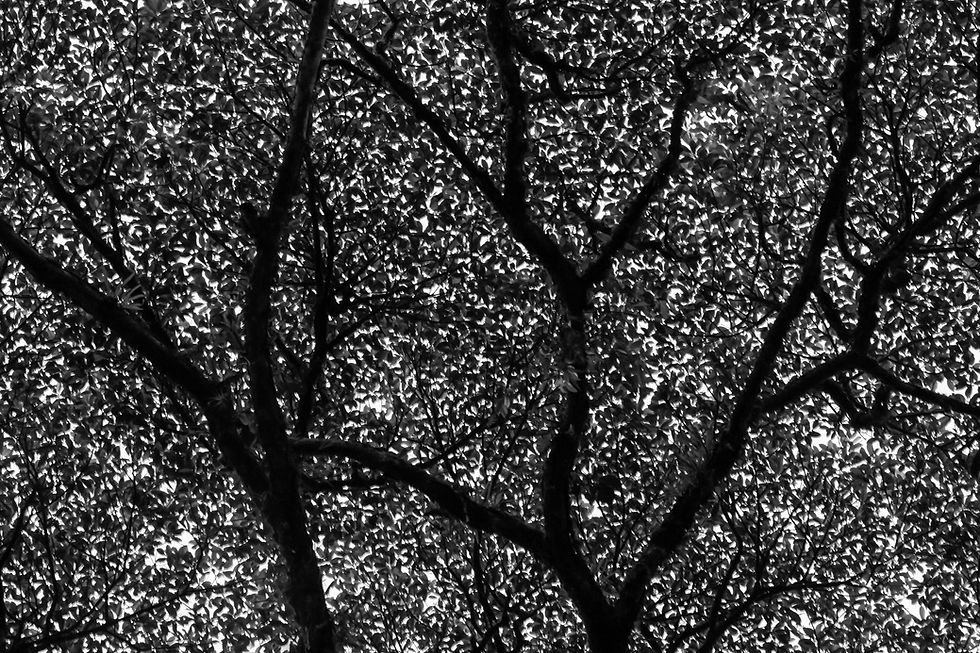Discernment's Origins
- pentecostvigilproj

- Feb 10, 2023
- 4 min read
Updated: Mar 27, 2023
I’ve been a Catholic since 1988. I’ve been in service to the Church in one way or another since 1992. Like many of you, I am an ongoing learner through both coursework, independent study and research. So how is it that I could get this far into life in Christ, a spiritual journey and ministry/work and still be so unfamiliar with discernment in general? Uneasy with its practice? There are probably a lot of factors contributing to this state of affairs, but alas… I find myself wanting to understand this better right now, since it’s a foundation for becoming a synodal Church.

So, if you’re even a little like me, read on…and if you already know a lot about this, I hope you’ll contact me so I can learn from you!
I like to understand where things come from. I like knowing whose shoulders I am standing on, whose embrace I live within, and whose insights can help shape mine. So I am on the hunt for where this idea of discernment actually comes from. Here’s some of what I am learning:
50 AD: The Council of Jerusalem, recounted in Acts 15, gives an early record of discernment in common.
Third Century: Origen (an early Christian scholar, theologian and ascetic) introduced the idea that we get our thoughts from one of three sources: God, good spirits or evil spirits and so it is possible to find a way to recognize these spirits at work and choose between them.[i]
Fourth Century: John Cassian (Christian monk and theologian)[ii], following Origen, saw human thought coming from three sources as well: God, the devil and ourselves. He called for exercising “wise discretion” concerning them as they surface.
Sixth Century: John Climacus (Christian monk of the monastery at Mt. Sinai), who built upon Cassian’s insights in his Ladder of Divine Ascent. He said, “From humility comes discernment, from discernment comes insight, and from insight comes foresight. And who would not run this fine race of obedience when such blessings are there ahead of him?”[iii]
As you can see, the focus of discernment in the early church moved from that first discernment in common to individuals and interpersonal relationships. Communal discernment or discernment in common, while echoed in the Council of Jerusalem, would need more time to develop. Soon different approaches to discernment emerged in the church in the east and the church in the west. The western church was heavily influenced by the Roman Empire, and imitated Roman laws and governance. As a result, the western church saw discernment influenced by the importance of authority, tradition, unity and continuity. [iv] Here's a little more history:
The Dark Ages: Monastic expressions and the mystics emerge. Meister Eckhart, Thomas á Kempis are notable in this time period.
The Renaissance:
* The Council of Constance (1415-1418) and the Council of Trent (1545-1563) both did not use the practices of discernment in coming to their teachings.
* Ignatius of Loyola (1491-1556), Spanish Catholic Priest and theologian, founder of the Jesuits and author of Spiritual Exercises outlines “Rules for Discernment of Spirits.”[v]
* John of the Cross (1542-1591) and Teresa of Avila (1515-1582) introduce the aspect of human desire to the concept and practice of discernment.[vi]
As you can see, discernment is woven throughout the history of the Church. And yet, why is it that the concept still seems so foreign to so many of us? Greg Caruso, in his “History of Discernment” says the Reformation, which ushered in a way of being church characterized by “The separation of governance and administration from spirituality…”[vii] offered one explanation. It rang true for me. I realized that was what I have experienced throughout my service to the Church. The two do not coincide, co-exist let along interact.
And here we are today, with Pope Francis calling for a synodal Church, one that listens carefully to the People of God, to the signs of the times, to the Deposit of Faith and sifts through it all, in search of the voice of the Spirit. He is calling for the reintegration of spirituality with governance and administration. He stands on solid ground historically. He’s a Jesuit, so he knows the pattern of individual discernment and of discernment in common. He practices discernment. He is convinced the reintegration has to happen. We at the Pentecost Vigil Project agree.
If you agree as well, join us on the #synodjourney. Go here to subscribe and walk the road with us, determined to learn how to be synodal together.
Phot by Frederico di Dio on Unsplash
[i] Origen, On First Principles (New York: Harper & Row, 1966 [ii] John Cassian, Conferences (New York: Paulist Press, 1985) 1:20, 54. [iii] John Climacus, The Ladder of Divine Ascent (New York: Paulist Press, 1982), 114. [iv] Greg Caruso. “A History of Spiritual Discernment.” Refractions on Life and Leadership. July 20. 2011. https://greggcaruso.blog/2011/07/20/a-history-of-spiritual-discernment/#:~:text=Discernment%20was%20developed%20in%20the,%E2%80%9CSpiritual%20Exercises%E2%80%9D%20on%20discernment. Accessed 12-17-22 [v] Ignatius of Loyola, Spiritual Exercises and Selected Works (New York: Paulist Press, 1964) [vi] Caruso. [vii] Ibid.






Comments